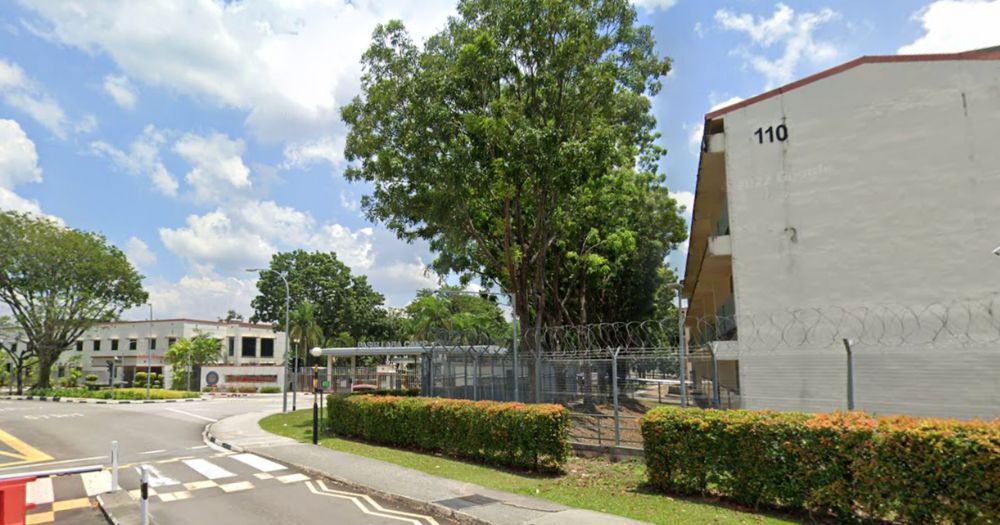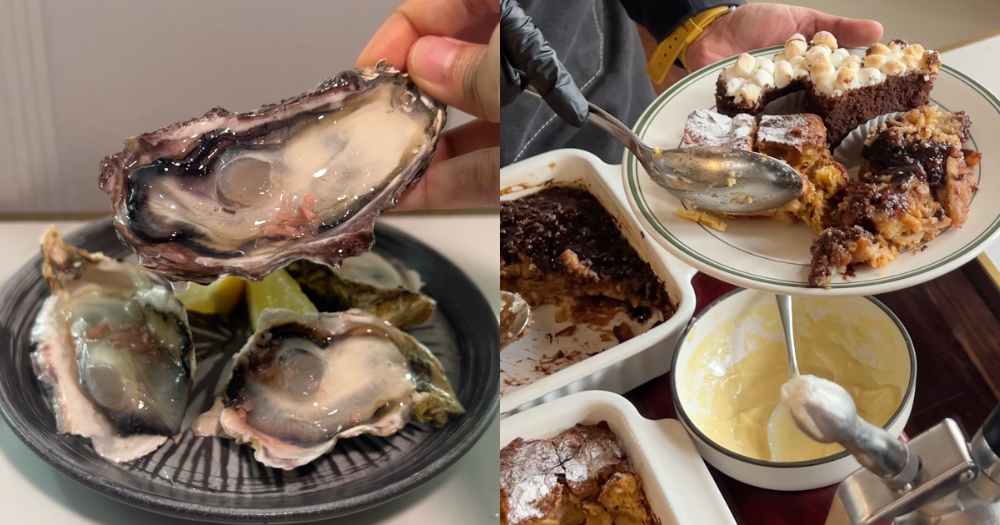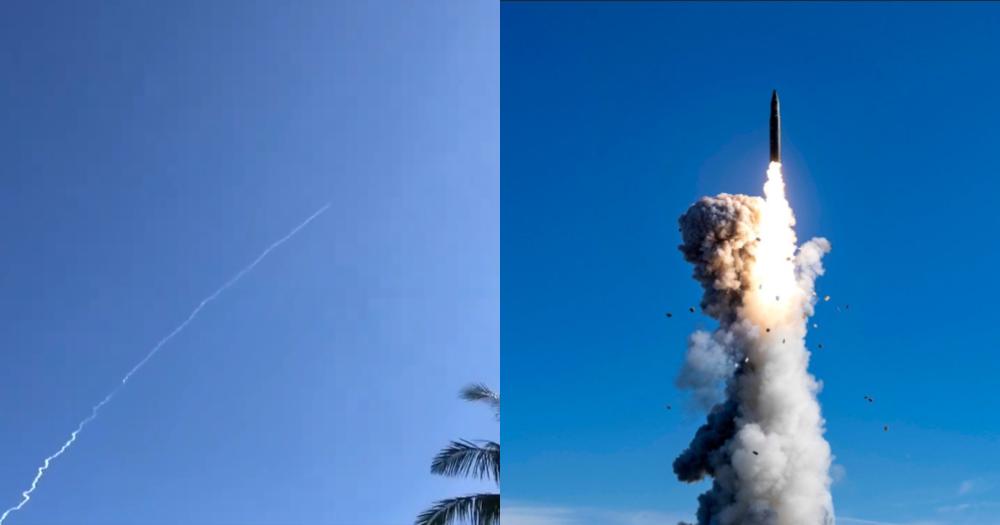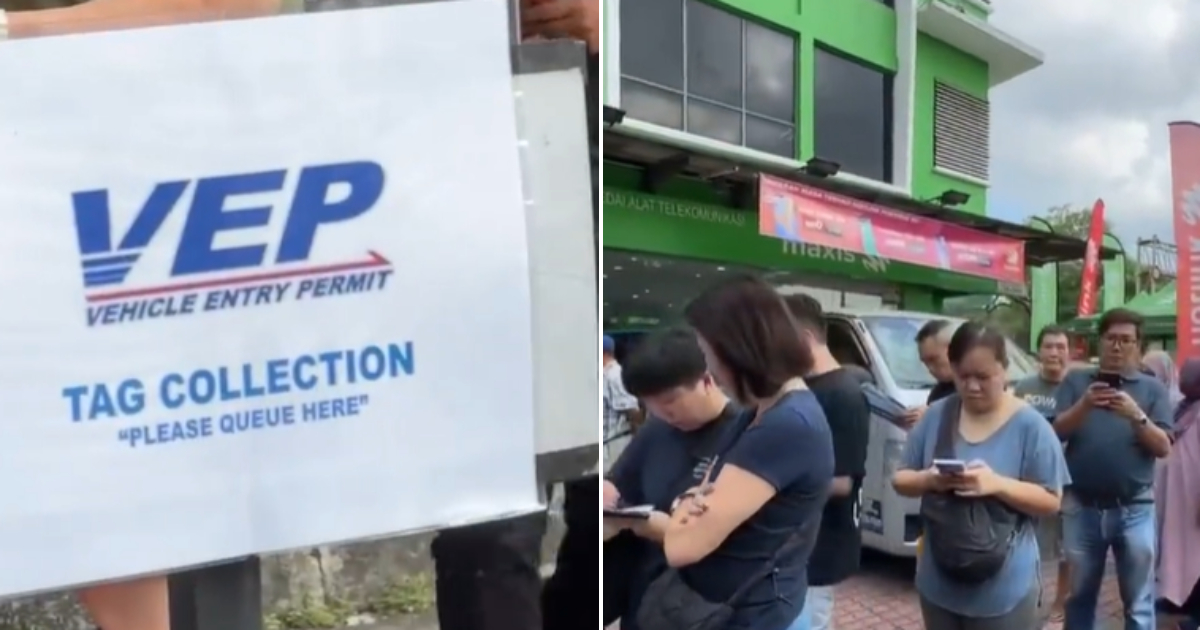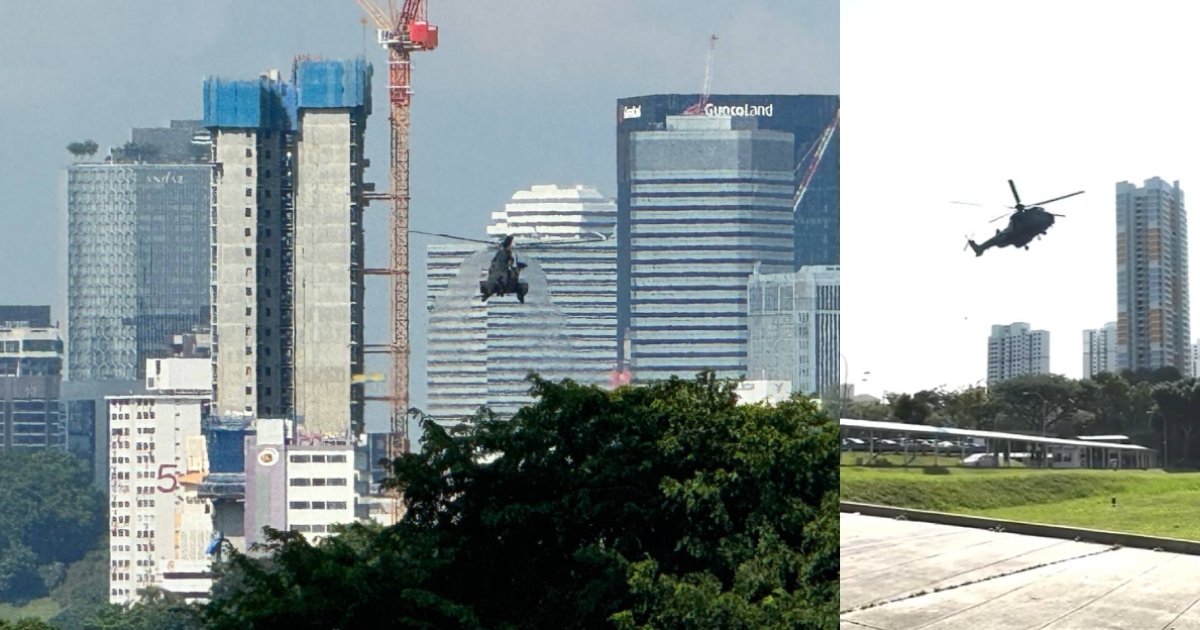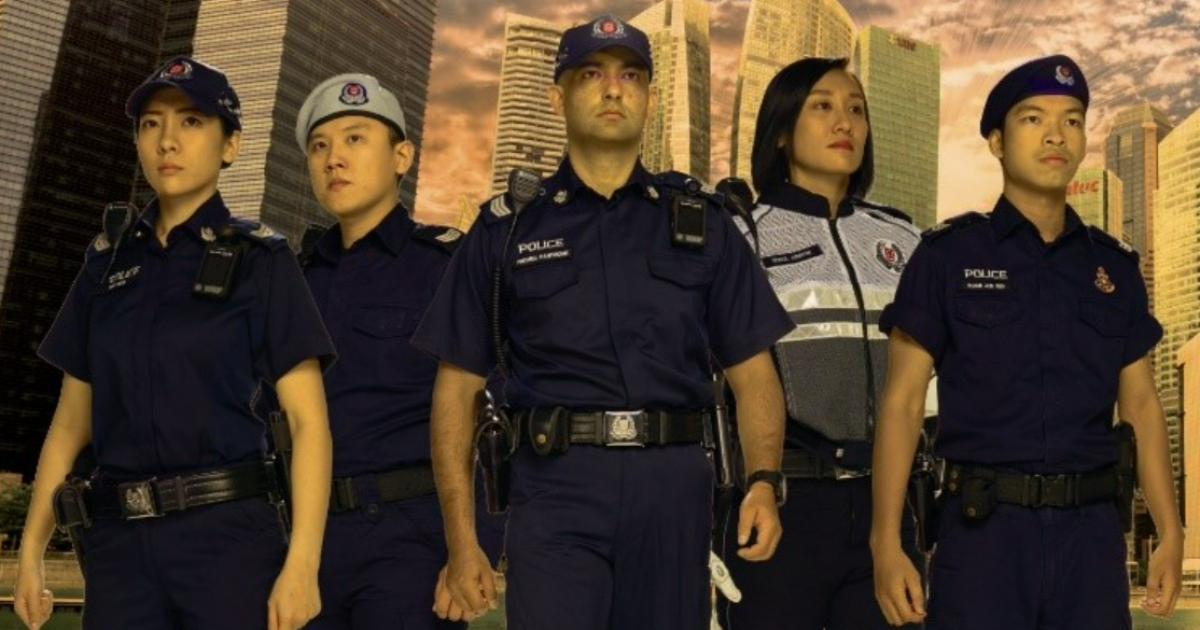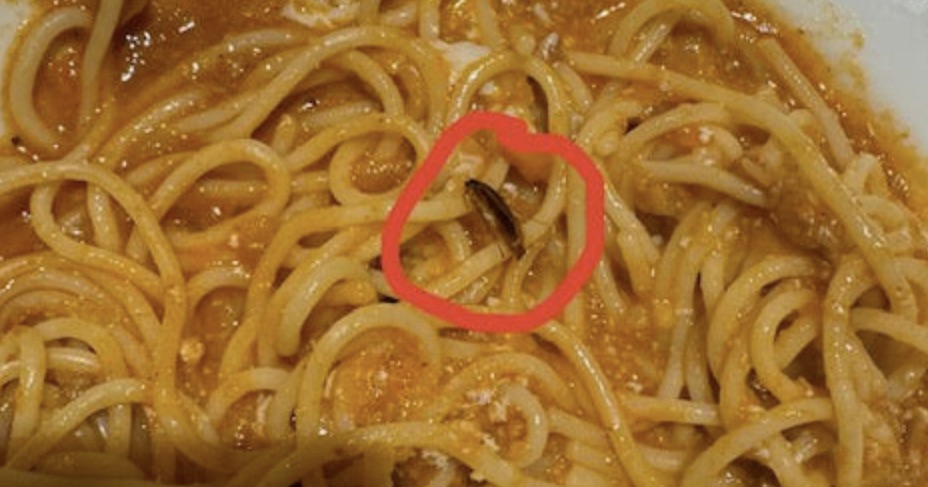Pasir Panjang oil spill: Over 700 volunteers deployed to patrol beaches, report oil sightings
Volunteers may be mobilised for the final stage of the clean-up when it's safe to do so.
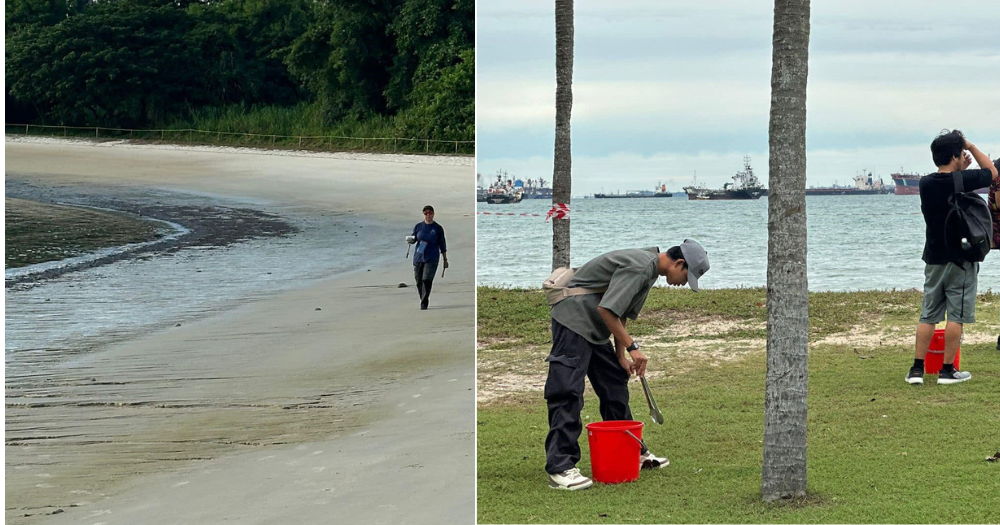
Over 700 volunteers have been deployed to help with oil spill management efforts following the Pasir Panjang oil spill, said Minister for National Development Desmond Lee in parliament on Jul. 2.
These volunteers were involved in a wide range of efforts, including patrolling beaches, reporting sightings of oil-slicked animals, and conducting biodiversity surveys in the wake of the Jun. 14 oil spill.
Where the volunteers are from
As of Jul. 1, Lee said that more than 1,500 individuals had signed up to help with oil spill management efforts.
Another 2,000 registered their interest to be kept updated on ongoing efforts and future volunteering opportunities, Lee noted.
The 700 deployed volunteers came from the Public Hygiene Council (PHC), the Friends of Marine Park, and organisations like the Singapore Veterinary Association.
How they helped
Some of the volunteers joined NParks to patrol East Coast Park and West Coast Park and advise members of the public to avoid affected beaches.
Others reported sightings of oil stains and oil-slicked wildlife for rescue and rehabilitation.
Marine experts and volunteers from the Friends of Marine Park helped to conduct surveys on St John’s Island and Lazarus Island so as to track the impact on biodiversity on these islands.
"We are very grateful to our volunteers for their strong support and to members of the public, nature groups and other organisations for coming together alongside our frontline workers to mitigate the impacts of the oil spill," Lee said.
"No significant impact" on biodiversity so far
Lee added that other biodiversity surveys were conducted at other sites including Sentosa, Labrador Nature Reserve and Sisters’ Island Marine Park, between Jun. 16 and 25.
He acknowledged that oil was sighted along the upper intertidal zones at Labrador rocky shore, Tanjong Rimau and Serapong at Sentosa, Bendera Bay at St John’s Island, Eagle Bay at Lazarus Island, and outer mangrove fringes near Labrador Nature Reserve.
However, other biodiversity-sensitive areas at Sisters’ Islands Marine Park, Changi Beach Park, Pasir Ris Park and Pulau Ubin's Chek Jawa "appear to be largely unaffected", Lee shared.
While there has been "no significant impact" on Singapore's marine biodiversity and wildlife observed so far, Lee said the situation "remains dynamic".
He noted that the impact on Singapore's marine and coastal ecosystems may only show up weeks or even months later, such as during spawning periods.
"Assessments of the environmental impact of the oil spill on our offshore islands are therefore also still ongoing," Lee added.
Lee also provided an update on the four collared kingfishers rescued from the oil spill by NParks and animal welfare groups such as ACRES.
"Despite prompt veterinary care, two of the four kingfishers unfortunately died, but the other two appear to have stabilised, and we are monitoring their condition closely," he said.
May mobilise volunteers for final phase of clean up
In a previous address on Jun. 19, Lee had noted that "due to safety reasons", volunteers were not deployed for beach cleanup.
Minister for Sustainability and the Environment Grace Fu echoed this on Jul. 2, saying that volunteers were not directly involved "due to the complexity of the tasks and for their own personal safety".
However, the authorities are considering mobilising volunteers for the final phase of the clean-up and are assessing if it is safe to do so, Fu said.
This stage is where remnant oil deposits that have hardened with sand and formed into tar balls, will need to be sieved and separated for removal.
"This process is labour-intensive, and if we have more hands to help, we can relieve the cleaners and accelerate the re-opening of the beaches," Fu shared.
If mobilisation is carried out, the ministry will use the pool of volunteers registered with NParks and volunteer groups that have contacted her and the ministry through messaging channels or social media.
The Public Hygiene Council will also help to train, equip and coordinate with volunteers for this effort, Fu shared.
"This would be a safe and meaningful way for Singaporeans to contribute to the re-opening of our beaches," she said.
Top image from NParks / Facebook

MORE STORIES







